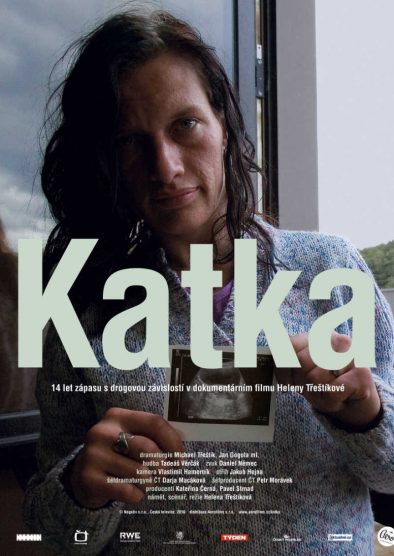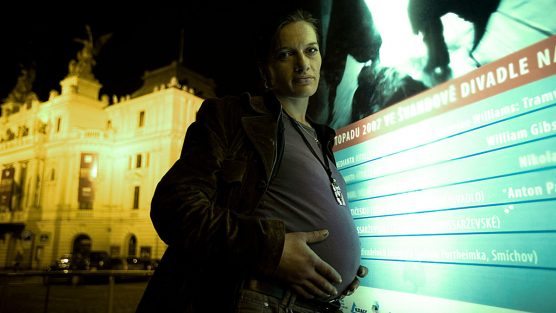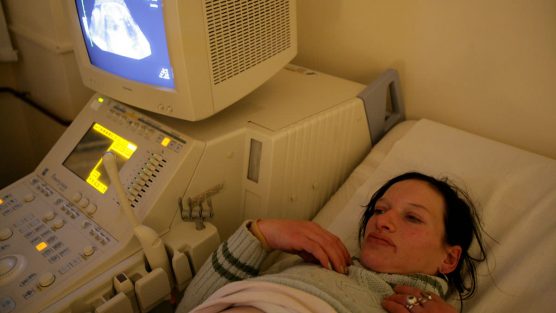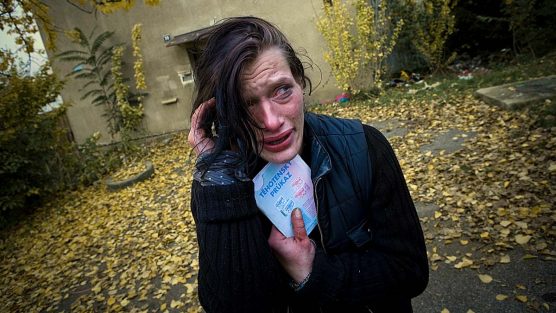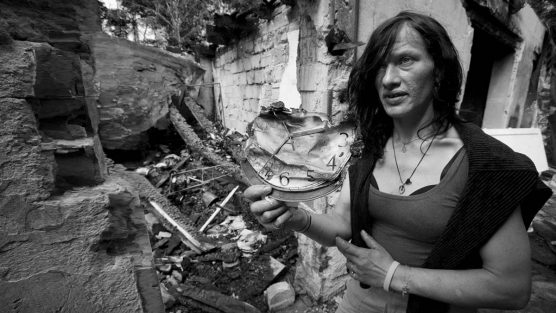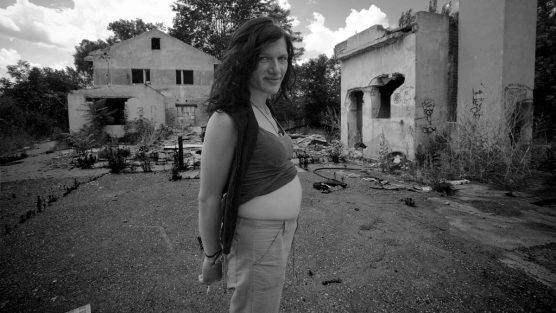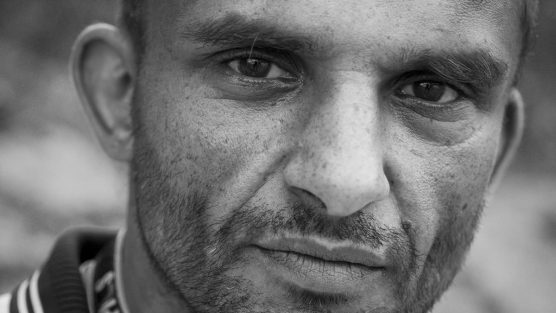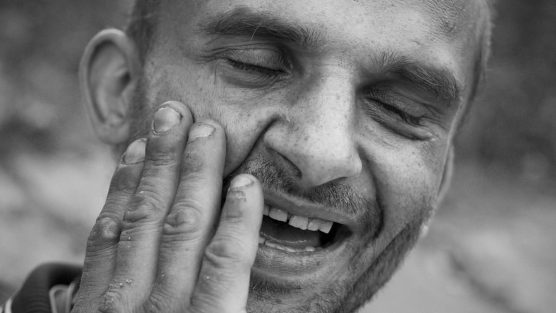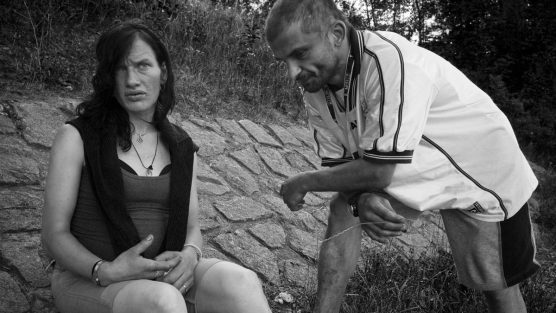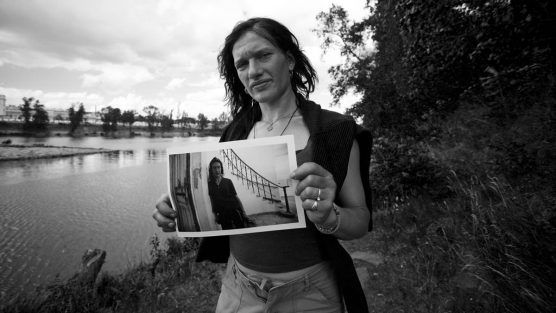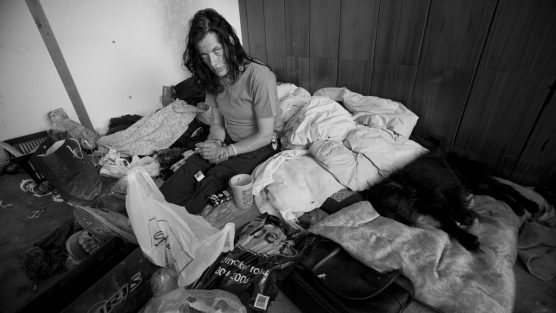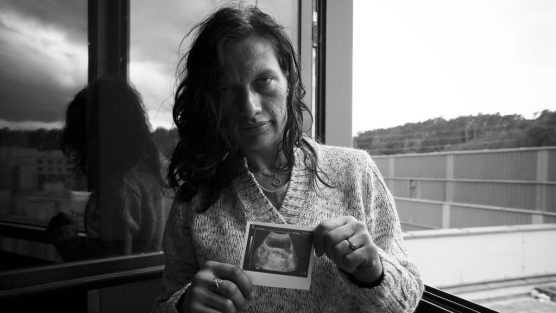You began filming Katka in 1996 at the Sananim therapy community in Němčice. Why exactly did you choose her as your subject?
In 1996 I was preparing a series of films for Czech Television in which I followed the lives of various women. One of these was to be a drug therapist. During the first filming session at the therapy community it struck me that it would be interesting to follow the fates of her two clients at the same time. One of these was Katka. As time progressed we shifted our focus and concentrated fully on Katka, who was able to reflect on her own situation in a very interesting way.
Following subjects over time is your speciality, but how were you able to maintain contact with Katka? She doesn’t have a permanent address or telephone…
That was always a huge problem. When Katka left the community it was if the earth had swallowed her up. I knew that at that time the centre for Prague junkies was near Old Town Square. That’s where I focussed my searches, and in time I actually did find Katka there. After that I would leave messages at the little house where Katka lived with her boyfriend, and they would get in touch. Then mobile phones came out, but Katka never kept the same number for long. Sometimes she called on her own, or we’d leave messages on the bulletin board at the Drop-in. There were times we had to wait for hours at the meeting place, but Katka always showed up.
What was the longest time you went without seeing Katka?
After finishing Trapped I filmed Katka on several more occasions, the last time in 2004. In 2007 the producers from Negativ and I agreed to try to continue working on Katka’s story together. In April 2007 we won with the film Marcela at the Finále Film Festival in Plzeň and that very evening decided to start looking for Katka. We found her after about three weeks and met her at a small café in the centre of Prague. She seemed very run-down to me, but she was interested in our suggestion and literally said that the filming could finally be the motivation she needed to make some serious changes. By that she meant kicking her drug habit. Our first filming was around two weeks after that, and that’s when Katka told me that she thought she might be pregnant.
What were your feelings when you learned that Katka was expecting a baby?
It was an absolute shock, since it was clear to me that a tremendously powerful theme had entered the story, and I had no idea what was going to happen next. My main emotion was some kind of vague hope that this could be the impulse that Katka had been waiting for. At the same time, I was horrified by the consequences of failure.
What were the hardest moments for you in the fourteen years you worked with Katka?
The lives of Katka and her friends played out in the harsh and merciless world of the streets. We were often witness to critical situations that were beyond anything we had ever experienced. It has hard for me to come to grips with these situations. This is what made the work on this film exceptional – the volume of powerful emotions that were often overwhelming.
The effort to show the public a harsh and, above all, truthful depiction of a life with drugs over the course of a number of years is one side of your documentary work. During filming you were close, for example, to prostitution and theft. How does a director handle this stress?
I’m not a piece of wood that is indifferent to what it sees and records. My motivation is to use my films to pass on observations, understanding and experiences to viewers – to pass on what the camera captures and hope that people discover something to think about in these films, so that the message of these films somehow lives on in them.
On the other side is the invasion into Katka’s most intimate moments, a process she doesn’t reject, i.e. she cooperates in making the film. It’s possible that she often doesn’t even know the camera is there. Where do you think is the line that the filmmaker can or should not cross in this sense?
Everything was always agreed upon with Katka. We never filmed without her permission or with a hidden camera. We never initiated or provoked any of the situations we captured on film. If Katka appears in front of the camera on drugs, it simply means that she showed up at the shoot in that condition.
In your opinion what is Katka’s opinion on the motivation behind this film and the level of her privacy?
I believe that Katka always felt that the filming and the subsequent film would help her personally, and maybe even the audience. Naturally, she had her own limits and I sense that there were certain things she never confided in us.
What was Katka’s reaction when she saw the final result of your years of filming?
Katka saw the finished film. She didn’t bat an eyelash for the whole screening. She approved the film. And then I asked her if she wanted to send a message to her daughter Terezka, who will perhaps see this film some day. She hesitated for a moment and then apologized to her daughter, her voice cracking for the first time.
You always remained hopeful that life would get better for your characters, be it Marcela or René. What do you think the future holds for Katka?
I could never admit that there is no hope. There can always be a turning point in any human story. This faith gives me the strength to make my films. I live these stories; I am not a sceptic.
A distribution strategy to schools for the film Katka is currently in the works. Can we therefore assume that you believe the film could function in the area of drug prevention?
I strongly believe in the ability of films to impact and influence the lives of viewers. I hope that this struggle with drugs is engaging for students and that it leads to serious and responsible reflection on the subject of drugs.
